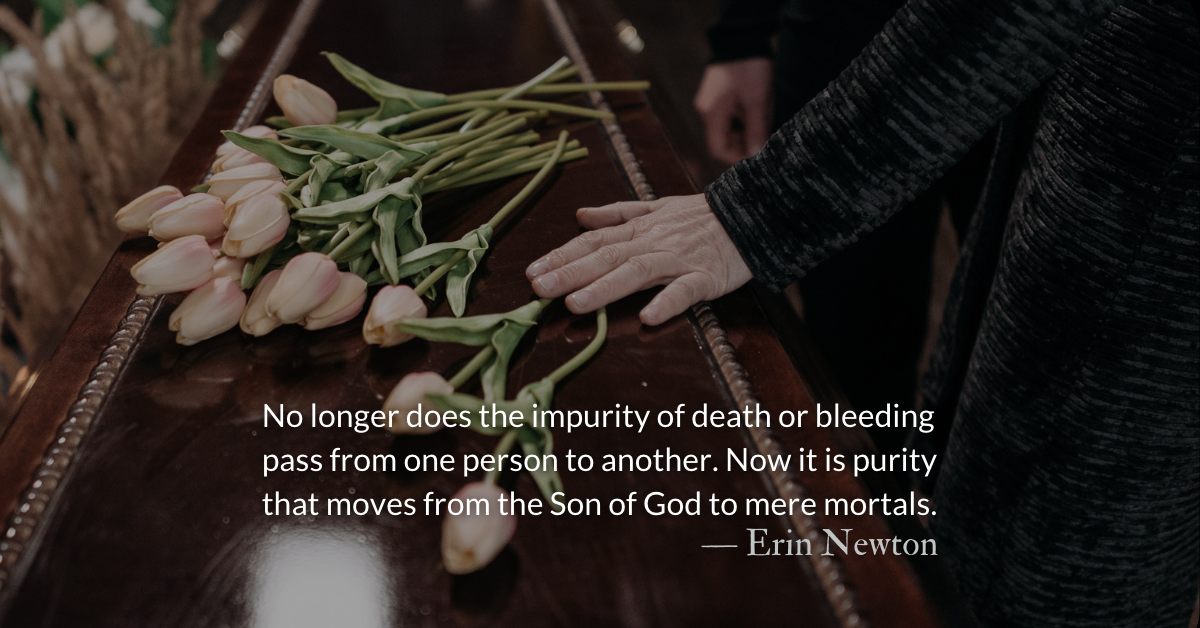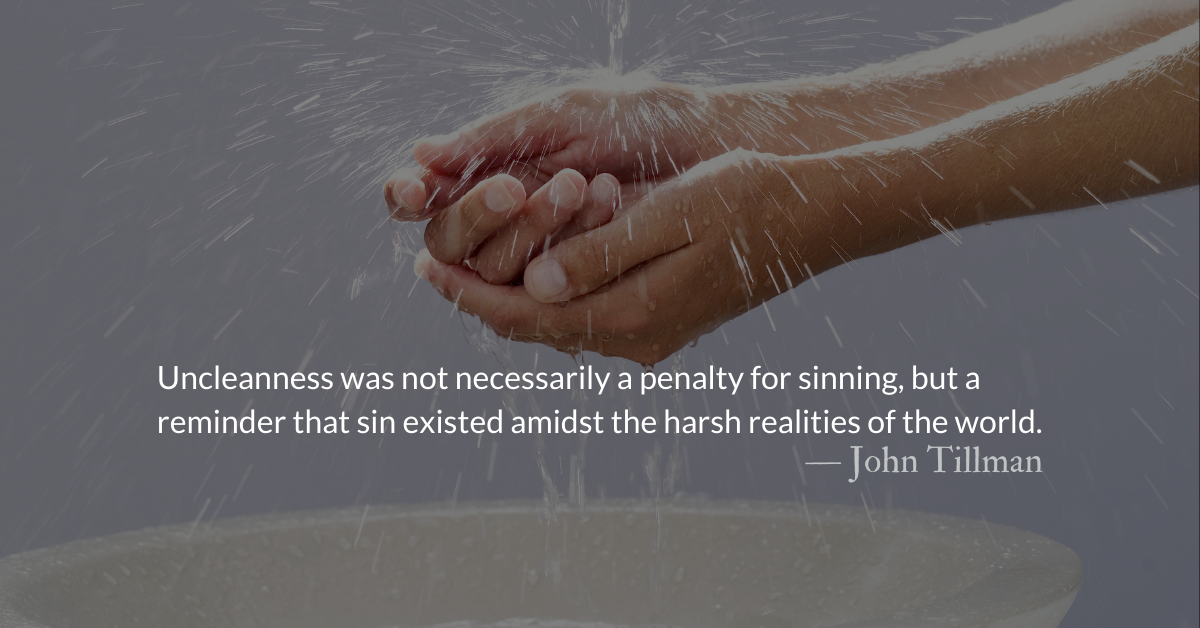Scripture Focus: Numbers 19.11, 16
11 “Whoever touches a human corpse will be unclean for seven days.
16 “Anyone out in the open who touches someone who has been killed with a sword or someone who has died a natural death, or anyone who touches a human bone or a grave, will be unclean for seven days.
Reflection: Caring for the Dead
By Erin Newton
There is, in fact, a sting to death. It is painful and cruel. It rends our hearts with each new loss. Within the mortal body was someone dearly loved. With a final embrace, a closing of eyes—we often seek to lay their bodies to rest with gentleness and care.
In the ancient world, such contact with the dead led to a week’s worth of impurity. Those defiled by contact with death could not enter the Temple until they were cleansed. Death could not reside within the presence of God. Death is the antithesis to a Creator God.
Numbers 19 details purification through the washing of water mixed with the ashes of a red heifer. The ash-mixed water with other cleansing agents was sprinkled on those defiled by contact with the dead. This law, combined with the natural trajectory of life, meant this practice occurred quite frequently.
Respect and care for the dead could not be avoided, even if the cleansing ritual was inconvenient. Even in death, each person is an image bearer of God. Each mortal body must be treated with dignity and honor.
When Jesus died upon the cross, Joseph of Arimathea requested his body so he could be buried before the Sabbath. John tells us that it was Nicodemus who brought the burial spices and helped wrap the body in linen. Joseph and Nicodemus willingly entered a week of impurity. We do not hear from them again.
It is fascinating to consider the crucified Lord, having been prepared for burial and causing two men to enter a state of impurity, would choose to join with his disciples three days after his death. This same God who declares the uncleanliness of death is now content to meet with them, dine with them, and let them touch his body. They are at no risk of defilement; Jesus is no walking corpse. He is alive.
The purity laws are always reversed with Jesus. No longer does the impurity of death or bleeding pass from one person to another. Now it is purity that moves from the Son of God to mere mortals. The ashes of a heifer could outwardly clean, but the blood of Christ does so much more (Heb 9:12-14).
How we honor our dead continues to reflect the value and dignity of each person. But no longer does death stand between our intimacy with God. Death has no victory.
Divine Hours Prayer: The Small Verse
Let me seek the Lord while he may still be found. I will call upon his name while he is near.
– From The Divine Hours: Prayers for Springtime by Phyllis Tickle.
Today’s Readings
Numbers 19 (Listen 3:39)
1 Thessalonians 1 (Listen 1:27)
Read more about The Staggering Dead and the Glory of God
One day, as Lazarus and our dear Christ, himself…we will leave our grave clothes behind. That is the glory of God.
Read more about The Broken Power of Death
For those in Christ, death is a toothless predator, a limbless wrestler, who cannot hold us down for long.



